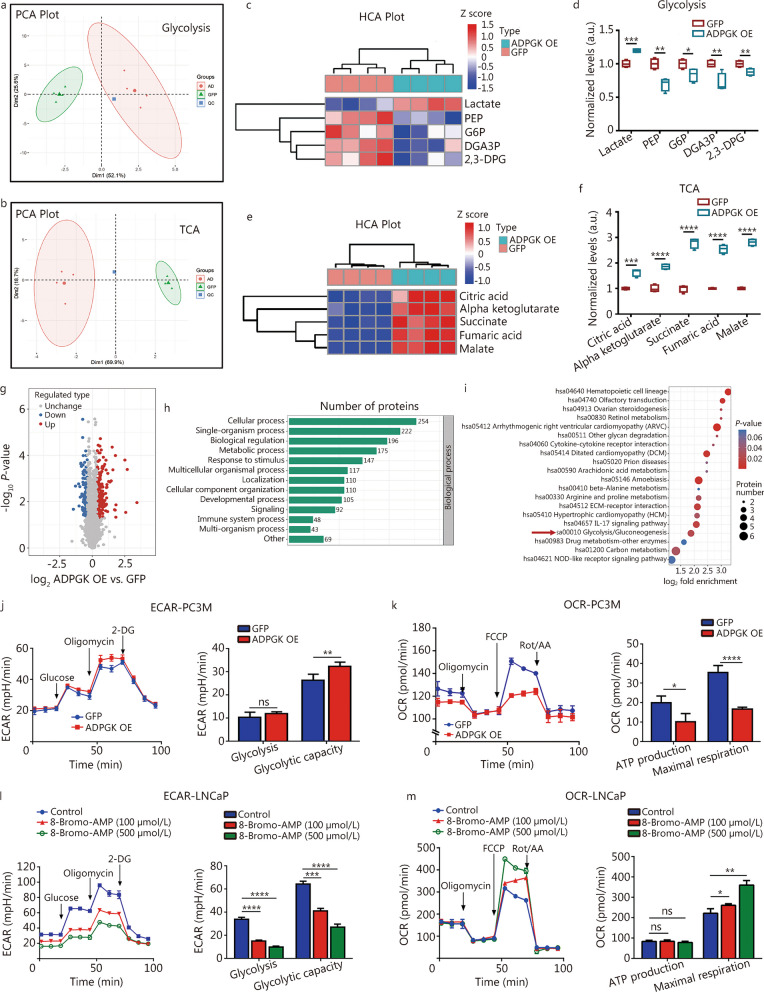Fig. 5.
ADPGK controls PCa metabolic fitness. Principal component analysis (PCA) of the metabolomics of glycolysis (a) and the TCA cycle (b). c HCA plot from metabolomics of glycolysis. d Normalized levels of glycolytic products after ADPGK overexpression in PC3 cells. e HCA plot from metabolomics of TCA products. f Normalized levels of TCA products after ADPGK overexpression in PC3 cells. g A volcano plot from quantitative proteomics showed the differentially expressed proteins identified by quantitative proteomics (P-value < 0.05; |log2 fold change|> 1.3). GO (h) and KEGG (i) enrichment analysis of upregulated genes. ECAR (j) and OCR (k) tests in PC3M cells (n = 3). ECAR (l) and OCR (m) tests were performed in LNCaP cells after incubation with 8-Bromo-AMP for 72 h (n = 4). Data are presented as the mean ± SD. *P < 0.05, **P < 0.01, ***P < 0.001, ****P < 0.0001, ns non-significant. PCa prostate cancer, ADPGK ADP-dependent glucokinase, PEP phosphoenolpyruvate, G6P glucose-6-phosphate, DGA3P 3-phosphoglyceraldehyde, 2,3-DPG 2,3-diphosphoglycerate, TCA tricarboxylic acid, HCA hierarchical cluster analysis, GO Gene Ontology, KEGG Kyoto Encyclopedia of Genes and Genomes, ECAR extracellular acidification rate, OCR oxygen consumption rate, 2-DG 2-deoxy-glucose, FCCP fluorocarbonyl cyanide phenylhydrazone, Rot/AA rotenone/antimycin A, SD standard deviation, NC negative control, OE overexpression, a.u. artificial unit

